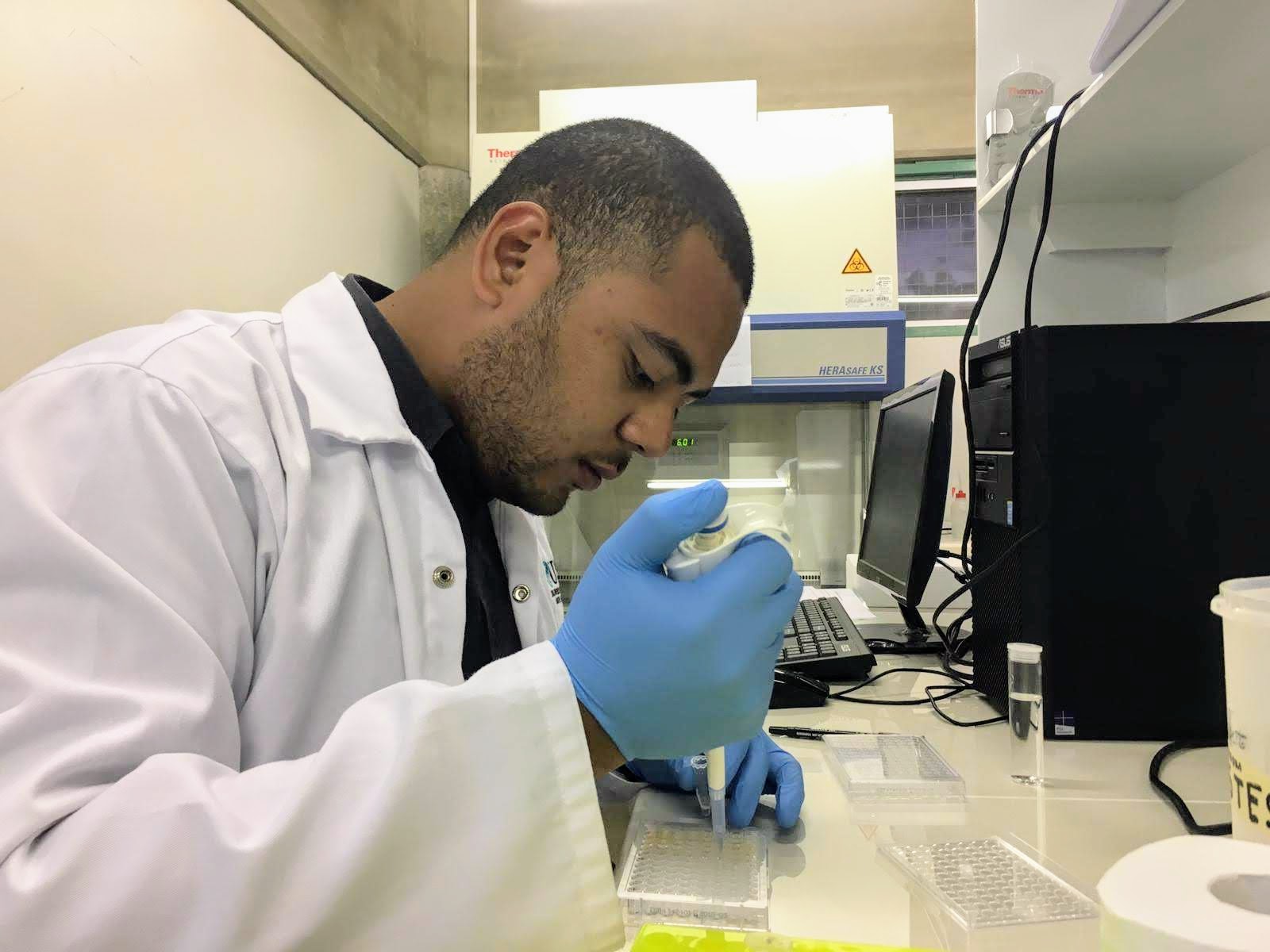Related News

PhD Scholarship recipient of the Pacific-European Union Marine Partnership (PEUMP) Programme at the Institute of Marine Resources (IMR), School of Agriculture, Geography, Environment, Ocean and Natural Sciences (SAGEONS), Mr Rufino Varea, presented his research findings at the Fiji Pharmaceuticals Society’s Annual Conference held on Saturday 8th October. His presentation, titled, “Pharmaceuticals baseline study in Fiji Coastal waters and exposure effects in glass perchlet” highlighted critical issues regarding the impacts of commercial drugs in the marine environment. Results showed that an antidepressant drug called amitriptyline could affect glass perchlets fish’s behaviour and feeding habits, eventually leading to its poor health conditions.
“The findings of this research are a steppingstone to bridging the knowledge gaps needed for developing better-informed policies and implementation plans by relevant stakeholders such as government ministries and pharmaceutical industries” said Cherie Morris, USP Assistant Lecturer and interim team leader for the USP PEUMP Programme. “We are grateful to the Fiji Pharmaceutical Society for opening its platform to discussions around these as implications of pharmaceutical drugs on the environment and food chains can pose real threats”.
Varea, along with fellow researchers Jasha Dehm and Theo-Charles Martin designed and carried out a preliminary exposure study to observe possible biological and biochemical effects of this commonly found pharmaceutical in Fiji’s coastal waters when exposed to a widely distributed fish species of glass perchlets.
“There is more we need to know, but this research demonstrates that it can be achieved. We recommend a wider collaboration, funding, and scientific inquiry on these findings,” said Varea. “A more comprehensive study of different pharmaceuticals, particularly on fish and shellfish, incorporating a more detailed clinical observation of organisms when exposed to such pharmaceuticals and commercial medicinal drugs, is needed.”
Comprehensive collaboration with regional scientists and clinicians will broaden our understanding pharmaceuticals’ short-term and long-term implications in our environment and the risk they may pose to human health. Environmental monitoring programmes must incorporate a more broad approach to ecological risk assessments. Fiji’s current legislation and environmental laws or watch lists for pharmaceuticals in the environment still need to be developed.
USP is one of four key implementing partners of the PEUMP Programme, an initiative funded by the European Union and the Government of Sweden. The overall EUR 45million Programme promotes sustainable management and sound ocean governance for food security and economic growth while addressing climate change resilience and conservation of marine biodiversity. It follows a comprehensive approach, integrating issues related to ocean fisheries, coastal fisheries, community development, marine conservation and capacity building under one single regional action.